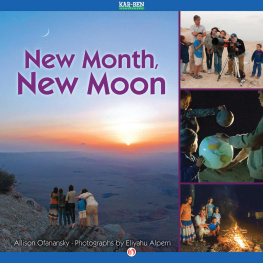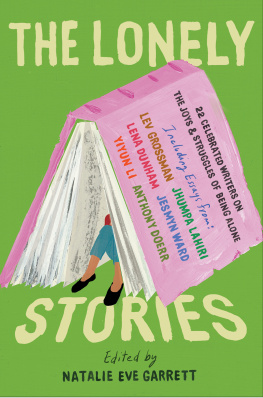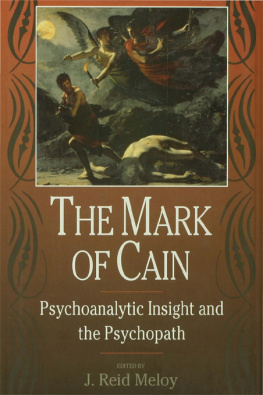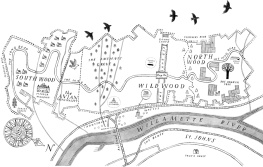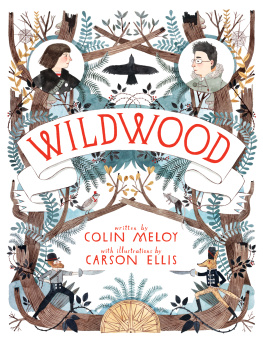Maile Meloy - Both Ways Is the Only Way I Want It
Here you can read online Maile Meloy - Both Ways Is the Only Way I Want It full text of the book (entire story) in english for free. Download pdf and epub, get meaning, cover and reviews about this ebook. year: 2009, publisher: Riverhead Hardcover, genre: Art. Description of the work, (preface) as well as reviews are available. Best literature library LitArk.com created for fans of good reading and offers a wide selection of genres:
Romance novel
Science fiction
Adventure
Detective
Science
History
Home and family
Prose
Art
Politics
Computer
Non-fiction
Religion
Business
Children
Humor
Choose a favorite category and find really read worthwhile books. Enjoy immersion in the world of imagination, feel the emotions of the characters or learn something new for yourself, make an fascinating discovery.
- Book:Both Ways Is the Only Way I Want It
- Author:
- Publisher:Riverhead Hardcover
- Genre:
- Year:2009
- Rating:5 / 5
- Favourites:Add to favourites
- Your mark:
- 100
- 1
- 2
- 3
- 4
- 5
Both Ways Is the Only Way I Want It: summary, description and annotation
We offer to read an annotation, description, summary or preface (depends on what the author of the book "Both Ways Is the Only Way I Want It" wrote himself). If you haven't found the necessary information about the book — write in the comments, we will try to find it.
Both Ways Is the Only Way I Want It — read online for free the complete book (whole text) full work
Below is the text of the book, divided by pages. System saving the place of the last page read, allows you to conveniently read the book "Both Ways Is the Only Way I Want It" online for free, without having to search again every time where you left off. Put a bookmark, and you can go to the page where you finished reading at any time.
Font size:
Interval:
Bookmark:





CHET MORGAN GREW UP in Logan, Montana, at a time when kids werent supposed to get polio anymore. In Logan, they still did, and he had it before he was two. He recovered, but his right hip never fit in the socket, and his mother always thought he would die young.
When he was fourteen, he started riding spoiled and unbroke horses, to prove to her that he was invincible. They bucked and kicked and piled up on him, again and again. He developed a theory that horses didnt kick or shy because they were wild; they kicked and shied because for millions of years theyd had the instinct to move fast or be lion meat.
You mean because theyre wild, his father had said when Chet advanced this theory.
He couldnt explain, but he thought his father was wrong. He thought there was a difference, and that what people meant when they called a thing wild was not what he saw in the green horses at all.
He was small and wiry, but his hip made it hard for him to scramble out from under the horses, and he broke his right kneecap, his right foot, and his left femur before he was eighteen. His father drove him to Great Falls, where the doctors put a steel rod in his good leg from hip to knee. From then on, he walked as though he were turning to himself to ask a question.
His size came from his mother, who was three-quarters Cheyenne; his father was Irish and bullheaded. They had vague dreams of improvement for their sons, but no ideas about how to achieve them. His older brother joined the army. Watching him board an eastbound train, handsome and straight-limbed in his uniform, Chet wondered why God or fate had so favored his brother. Why had the cards been so unevenly dealt?
He left home at twenty and moved up north to the highline. He got a job outside Havre feeding cows through the winter, while the ranchers family lived in town and the kids were in school. Whenever the roads were clear, he rode to the nearest neighbors for a game of pinochle, but mostly he was snowed in and alone. He had plenty of food, and good TV reception. He had some girlie magazines that he got to know better than hed ever known an actual person. He spent his twenty-first birthday wearing long johns under two flannel shirts and his winter coat, warming up soup on the stove. He got afraid of himself that winter; he sensed something dangerous that would break free if he kept so much alone.
In the spring, he got a job in Billings, in an office with friendly secretaries and coffee breaks spent talking about rodeos and sports. They liked him there, and offered to send him to the main office in Chicago. He went home to his rented room and walked around on his stiff hip, and guessed hed be stove up in a wheelchair in three years if he kept sitting around an office. He quit the job and bucked bales all summer, for hardly any money, and the pain went out of his hip, unless he stepped wrong.
That winter, he took another feeding job, outside Glendive, on the North Dakota border. He thought if he went east instead of north, there might not be so much snow. He lived in an insulated room built into the barn, with a TV, a couch, a hot plate, and an icebox, and he fed the cows with a team and sled. He bought some new magazines, in which the girls were strangers to him, and he watched Starsky and Hutch and the local news. At night, he could hear the horses moving in their stalls. But hed been wrong about the snow; by October it had already started. He made it through Christmas, with packages and letters from his mother, but in January he got afraid of himself again. The fear was not particular. It began as a buzzing feeling around his spine, a restlessness without a specific aim.
The rancher had left him a truck, with a headbolt heater on an extension cord, and he warmed it up one night and drove the snowy road into town. The caf was open, but he wasnt hungry. The gas pumps stood in an island of bluish light, but the trucks tank was full. He knew no pinochle players here, to help him pass the time. He turned off the main street to loop through town, and he drove by the school. A light was on at a side door and people were leaving their cars in the lot and going inside. He slowed, parked on the street, and watched them. He ran a hand around the steering wheel and tugged at a loose thread on its worn leather grip. Finally he got out of the truck, turned his collar up against the cold, and followed the people inside.
One classroom had its lights on, and the people he had followed were sitting in the too-small desks, saying hello as if they all knew each other. Construction-paper signs and pictures covered the walls, and the cursive alphabet ran along the top of the chalkboard. Most of the people were about his parents age, though their faces were softer, and they dressed as though they lived in town, in thin shoes and clean bright jackets. He went to the back of the room and took a seat. He left his coat on, a big old sheepskin-lined denim, and he checked his boots to see what he might have dragged in, but they were clean from walking through snow.
We should have gotten a high school room, one of the men said.
A ladya girlstood at the teachers desk at the front of the room, taking papers from a briefcase. She had curly light-colored hair and wore a gray wool skirt and a blue sweater, and glasses with wire rims. She was thin, and looked tired and nervous. Everyone grew quiet and waited for her to speak.
Ive never done this before, she said. Im not sure how to start. Do you want to introduce yourselves?
We all know each other, a gray-haired woman said.
Well, she doesnt, another woman protested.
You could tell me what you know about school law, the young teacher said.
The adults in the small desks looked at each other. I dont think we know anything, someone said.
Thats why were here.
The girl looked helpless for a second and then turned to the chalkboard. Her bottom was a smooth curve in the wool skirt. She wrote Adult Ed 302 and her name, Beth Travis, and the chalk squeaked on the h and the r . The men and women in the desks flinched.
If you hold it straight up, an older woman said, demonstrating with a pencil, with your thumb along the side, it wont do that.
Beth Travis blushed, and changed her grip, and began to talk about state and federal law as it applied to the public school system. Chet found a pencil in his desk and held it like the woman had said to hold the chalk. He wondered why no one had ever showed him that in his school days.
The class took notes, and he sat in the back and listened. Beth Travis was a lawyer, it seemed. Chets father told jokes about lawyers, but the lawyers were never girls. The class was full of teachers, who asked things hed never thought of, about students rights and parents rights. Hed never imagined a student had any rights. His mother had grown up in the mission school in St. Xavier, where the Indian kids were beaten for not speaking English, or for no reason. Hed been luckier. An English teacher had once struck him on the head with a dictionary, and a math teacher had splintered a yardstick on his desk. But in general they had been no trouble.
Next pageFont size:
Interval:
Bookmark:
Similar books «Both Ways Is the Only Way I Want It»
Look at similar books to Both Ways Is the Only Way I Want It. We have selected literature similar in name and meaning in the hope of providing readers with more options to find new, interesting, not yet read works.
Discussion, reviews of the book Both Ways Is the Only Way I Want It and just readers' own opinions. Leave your comments, write what you think about the work, its meaning or the main characters. Specify what exactly you liked and what you didn't like, and why you think so.



